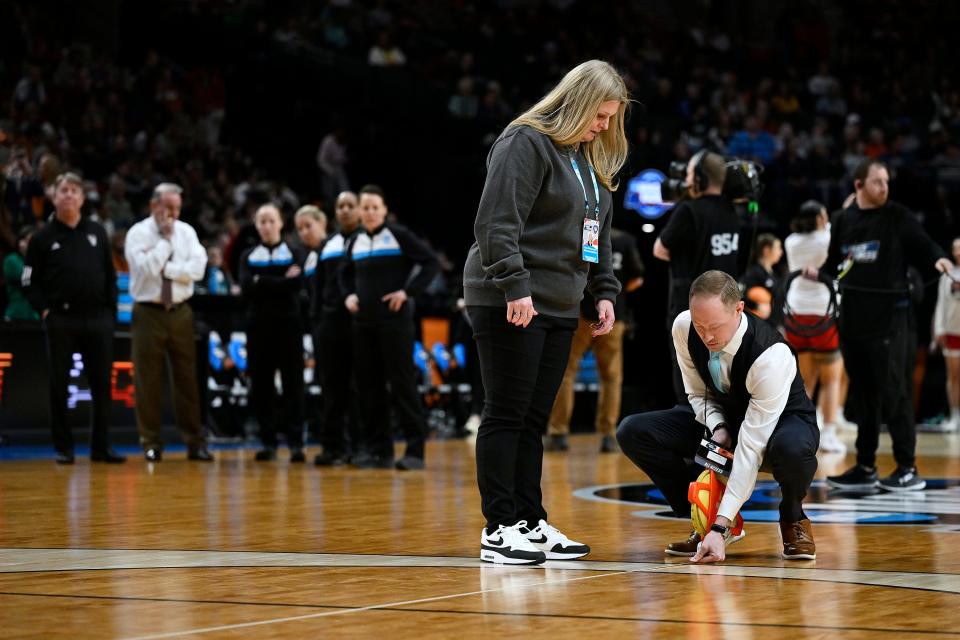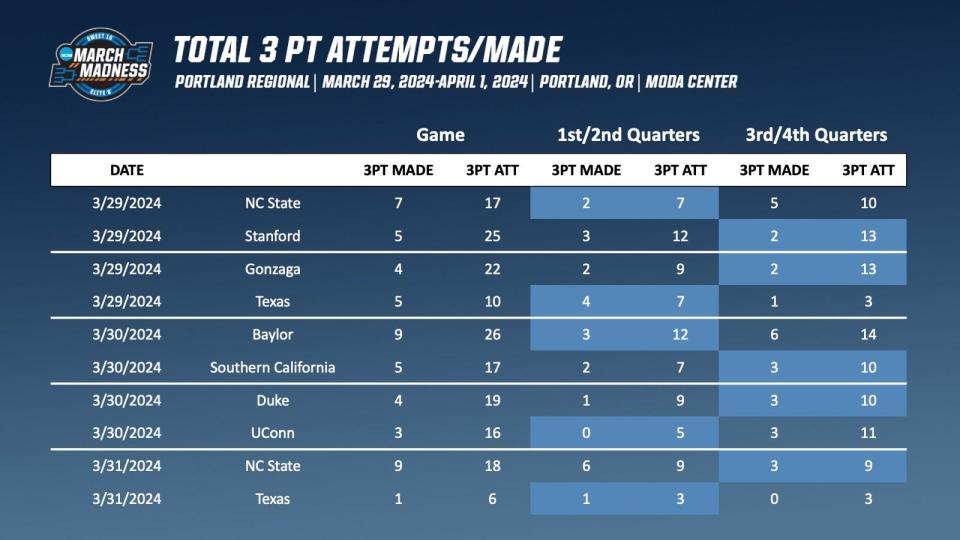NCAA apologizes, fixes court overnight. Uneven 3-point line blamed on 'human error'
The NCAA apologized for letting five women's March Madness games play out on a court with uneven 3-point lines, one nine inches shorter at the apex than the other. The line was fixed ahead of Monday's Elite Eight games.
"We apologize for this error and the length of time for which it went unnoticed," the NCAA said in a statement released Monday. "Simply put, this court did not meet our expectations, and the NCAA should have caught the error sooner."
How did this happen? "Human error," the NCAA said.
Connor Sports, the company contracted to install all of the courts for the men's and women's tournaments, was called out for that error.

"For all NCAA courts, a small hole is punched in the floor at each end of the court that indicates 'center-of-basket' during the finishing process," the NCAA statement read. "A calibrated vinyl-tape device is then placed in the hole, which lays the 2-inch game line to be painted.
"Review of the Portland court found the center-hole was punched in the wrong position, which resulted in the incorrect arc measurement for the 3-point line. The center-hole was placed approximately 9 inches from the center of the basket, causing the arc of the 3-point line to be approximately 9 inches short at the apex of the arc."
All other courts being used in the tournament were also inspected and found to have the correct measurements, the statement said.

After discovering the uneven lines Sunday ahead of an Elite Eight game between top-seeded Texas and No. 3 seed NC State, the teams were informed and decided to play on the court instead of delaying the game. NC State upset Texas 76-66.
"Overnight in Portland, the incorrect 3-point line was painted over with a color that matches as closely as possible the wood grain of the floor, and the correct 3-point line was painted on in black," the NCAA said. "This change brings the court into full compliance with NCAA playing rules."
Under NCAA rules adopted in the 2021-22 season, the women's 3-point line was set at 22 feet,1¾ inches. The NCAA also shared 3-point shooting statistics for the five games played in Portland before the line was fixed, showing no obvious statistical trends when playing on the side with the inaccurate 3-point line.
The NCAA said it will work with all suppliers and vendors to "establish additional quality control measures to ensure this does not happen in future tournaments."
Hall of Fame coach Tara VanDerveer, whose Stanford Cardinal played on the Portland court against NC State in the Sweet 16, called the error "inexcusable and unfair."
"When you arrive at a gym, especially in the NCAA Tournament, at the very least you expect the baskets to be 10 feet and the floor markings to be correct," VanDerveer said in a statement Monday. "For an error of that magnitude to overshadow what has been an incredible two weekends of basketball featuring sensational teams and incredible individual performances is unacceptable and extremely upsetting."
This article originally appeared on USA TODAY: NCAA fixes uneven 3-point line in Portland, blames 'human error'

